What is the UK's plan to send asylum seekers to Rwanda?published at 09:31 BST 13 June 2024
Plans to send some asylum seekers to Rwanda were passed by Parliament, but still face legal challenge.
Read MorePlans to send some asylum seekers to Rwanda were passed by Parliament, but still face legal challenge.
Read MoreAll that remains of Congo's murdered leader Patrice Lumumba is handed to his family in Brussels.
Read MoreFor the latest updates, go to bbc.com/africalive.
Justin Rowlatt finds out what gorilla conservation can teach us about protecting other species.
Read MoreBo Rangers will play for pride rather than financial gain when they take part in the African Champions League for the first time.
Read MoreRwandan journalists tell the BBC how oppression at home forced them to become refugees.
Read MoreBiologist Lee White explains how creating national parks revived Gabon’s elephant population.
Read MoreThe Stormers win the inaugural United Rugby Championship title, beating fellow South African club the Bulls 18-13 in the final.
Read MoreThe 75-year-old is already under judicial investigation in France for raping a minor and trafficking.
Read MoreLaurent Mbanda disagrees with senior Church of England clerics who have called the policy "immoral".
Read MoreRangers and Nigeria midfielder Joe Aribo on finding the self-confidence that makes him a star for club and country.
Read More BBC World Service
BBC World Service
Newsroom
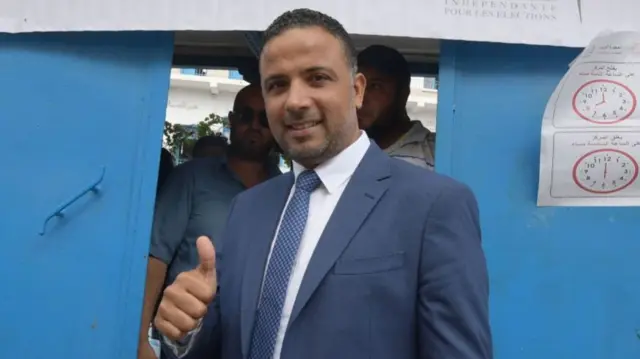 Image source, AFP
Image source, AFPSeifeddine Makhlouf is a strong critic of the president
A military appeal court in Tunisia has sentenced a prominent political opponent of President Kais Saied to one year in prison and banned him from practising law for five years.
A lawyer for Seifeddine Makhlouf said his client had been charged with insulting a judge, and that the verdict was a real farce.
He said President Saied had created a judiciary that he could control and use against opponents.
Makhlouf heads the conservative Karama party, which is allied to the Islamist Ennadha party.
He has been one of the strongest critics of Mr Saied's moves to establish what is effectively one-man rule.
Earlier this month, Mr Saied sacked dozens of judges, accusing them of protecting Islamists.
A new survey reveals 52% of young Africans are considering emigrating - some of them told the BBC why.
Read MoreAs Prince Charles prepares to meet Commonwealth heads, should he be blamed for his private comments?
Read MoreWe'll be back on Monday
That's all for now from the BBC Africa Live team this week. There will be an automated news feed until we're back on Monday morning at bbc.com/africalive.
You can also keep up to date on the BBC News website, or by listening to the Africa Today podcast.
A reminder of our wise words of the day:
Quote MessageA borrowed hoe does not finish weeding the patch."
A Shona proverb sent by MJ Maher in Surrey, the UK
Click here to send us your African proverbs.
And we leave you with this picture of fishermen chatting on their boats in Pemba, northern Mozambique - one of our favourites from our gallery of the week's best photos:
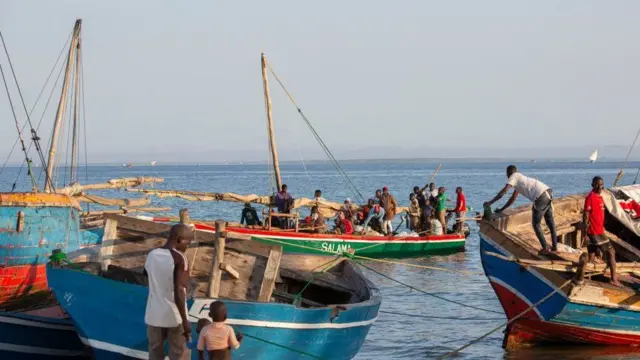 Image source, AFP
Image source, AFP DJ Edu
DJ Edu
Presenter of This Is Africa on BBC World Service
 Image source, OCB-PICTURE
Image source, OCB-PICTURENestelia Forest says the Congolese public are very demanding
What must it be like being an aspiring musician in the “other Congo” - Congo-Brazzaville?
The Democratic Republic of Congo is such a massive presence when it comes to African music, it must be hard not to feel overshadowed… and when it comes to marketing yourself internationally, do you just ride on your neighbour’s shiny coat tails, or do you try to get the world to realise that you are representing Congo-Brazzaville?
Well, it turns out that there is plenty going on musically in its port city of Pointe-Noire - and one of the most successful and determined female artists goes by the name of Nestelia Forest.
She started playing in bands as a teenager, but eventually took the plunge and launched her solo career in 2012.
Quote MessageIt was a very hard decision because here, musicians are often treated like people who don’t work, people who don’t know how to do anything - and especially when you are a woman, people will tell you that it’s a dodgy industry, you’re going to end up in prostitution.
Quote MessagePeople have a lot of imagination! So sometimes it can make you give up. But I knew what I wanted, and I really gave everything to succeed.”
Nestelia Forest’s hard work was rewarded. She had a big hit in 2012, Cocorico, which made her name. But even now, 10 years later, she still has to cope with quite a bit of pressure:
Quote MessageThe Congolese public are very demanding. Even if you have a great voice, if they don’t accept you, you are on the scrap heap.
Quote MessageMinguinita is a song I released in 2021 and it talks about everyday life, what we go through, the criticism that we get on social media. Even when you do some good work, people are always bringing each other down. I’m just asking people to let me do my work because it’s what I love.”
She suggests that her resilience may be linked to losing her mother at the tender age of 11. She poured out her emotions around that loss in her song Yaya Lombe.
Quote MessageIt was a way for me to tell her that it wasn’t easy without her, but it’s also because of all those things that happened that I am the woman I am today."
And Nestelia Forest is upbeat about the future of music in Congo-Brazzaville.
Quote MessageWe young people are working to be recognised. We have a lot of talent. I really like what’s happening right now. Thanks to social media it’s starting to work well for us. Artists like Roga Roga are touring the world, and we are so proud of that. He is representing Congo. It’s good that things are changing.”
You can hear more from Nestelia Forest, as well as an interview with Batswana rapper Veezo View, on This is Africa this Saturday on BBC World Service radio, external and partner stations across Africa.
 BBC Monitoring
BBC Monitoring
The world through its media
The Islamic State group has said it was behind an attack on a graphite mining project run by an Australian firm in Mozambique's northern Cabo Delgado province, saying it beheaded two security guards at the site.
Triton Minerals Ltd confirmed the attack on its premises which took place on 8 June in the Ancuabe district, saying two members of its security and caretaker staff were killed, according to the Club of Mozambique news site, external.
The district is in the south of Cabo Delgado and IS has only recently started targeting it.
Previously the militants operated further north in the province, namely in the districts of Macomia, Mocimboa da Praia and Meluco.
Cabo Delgado has been at the centre of a jihadist insurgency since 2017 that has forced hundreds of thousands people from their homes.
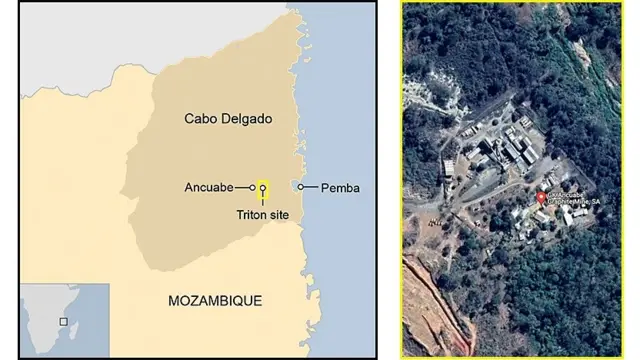
The killing adds to fears of wider conflict as DR Congo accuses Rwanda of backing Congolese rebels.
Read More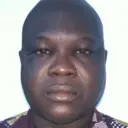 Nichola Mandil
Nichola Mandil
BBC News, Juba
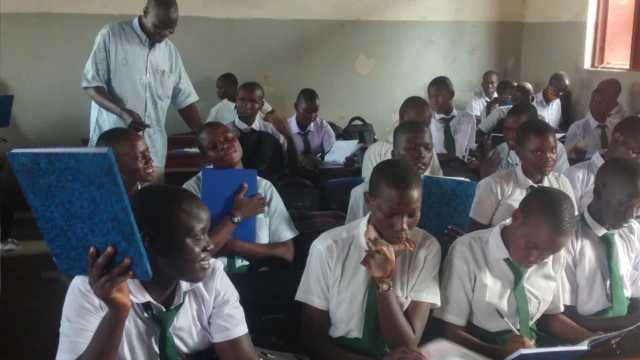 Image source, BBC/Nichola Mandil
Image source, BBC/Nichola MandilThe school term started on Wednesday and only half the students turned up at Mayo Girls Primary School
Thousands of children in South Sudan are likely to drop out of schools this year because of the suspension of the UN’s food aid, students and teachers have warned.
On Tuesday, the UN World Food Programme (WFP) said it was cutting food rations to almost 6.2 million people in the country - including 178,000 children fed in schools - because of a shortage of funding.
“Without that food children cannot come to school,” 16-year-old student Anita Anna Samson told the BBC.
She attends Mayo Girls Primary School in the capital, Juba - one of the beneficiaries of WFP’s feeding programme.
“I am appealing to WFP to continue providing the food. Personally I will be affected because my family cannot afford to provide enough food for me. If there is no food, I will not come to school,” she said.
Another student, 17-year-old Ijora Jovian, echoed the importance of the programme.
“The school provides for us beans with sorghum and this improves learning because children who don’t have money for breakfast rely on this food and during break time they stay in the school.”
The school’s deputy head teacher, Thomas Hakim Sebit, agreed the announcement by WFP was “sad news” as it would affect many of the more than 700 children at his school.
“If the food is cut off, the children will no longer come to school. I am appealing to WFP and the international community to continue supporting the school-feeding programme,” he said.
The news has already affected enrolment for the new term, which started on Wednesday, as only 350 girls turned up.
An investigation by BBC Africa Eye published this week revealed how children in Africa are being exploited to make personalised videos, which sometimes include racist content, that are sold and shared on Chinese social media.
Join BBC News Africa on Twitter Spaces at 17:00 GMT, external to hear from the makers of the documentary about the issues and reaction raised by the investigation.
The investigative journalist behind the film, Runako Celin, producer Henry Mhango as well as Africa’s biggest YouTuber Wode Maya and journalists based in Malawi and China will also join the debate.
Watch their investigation below:
Africa Eye: Racism for sale